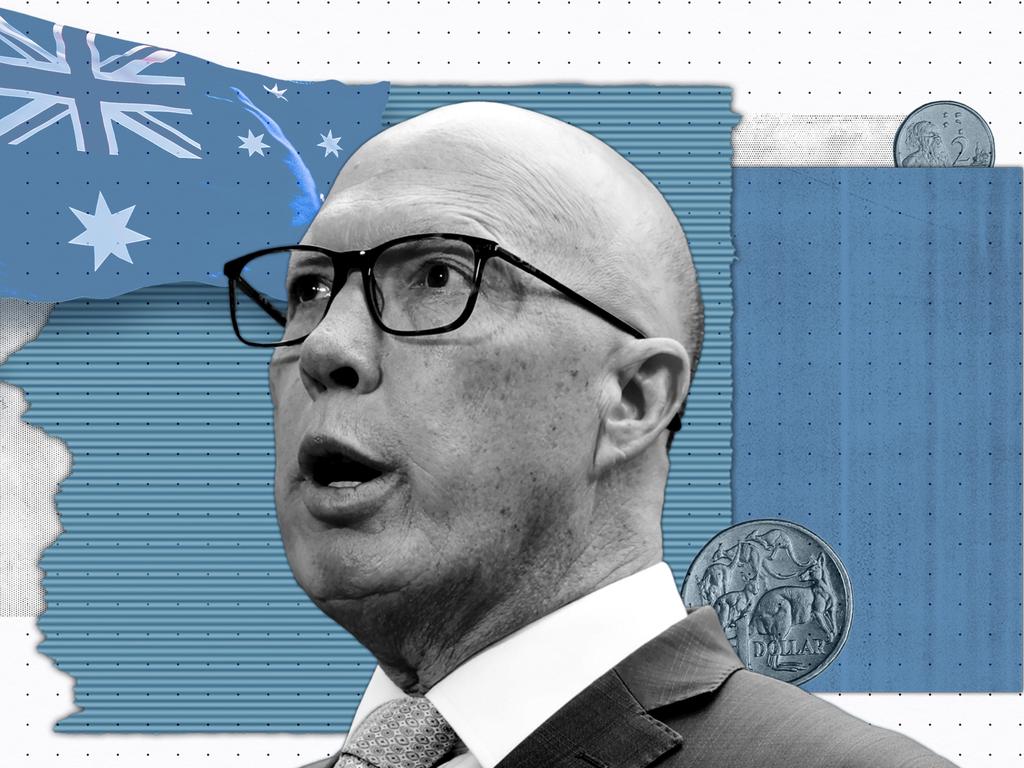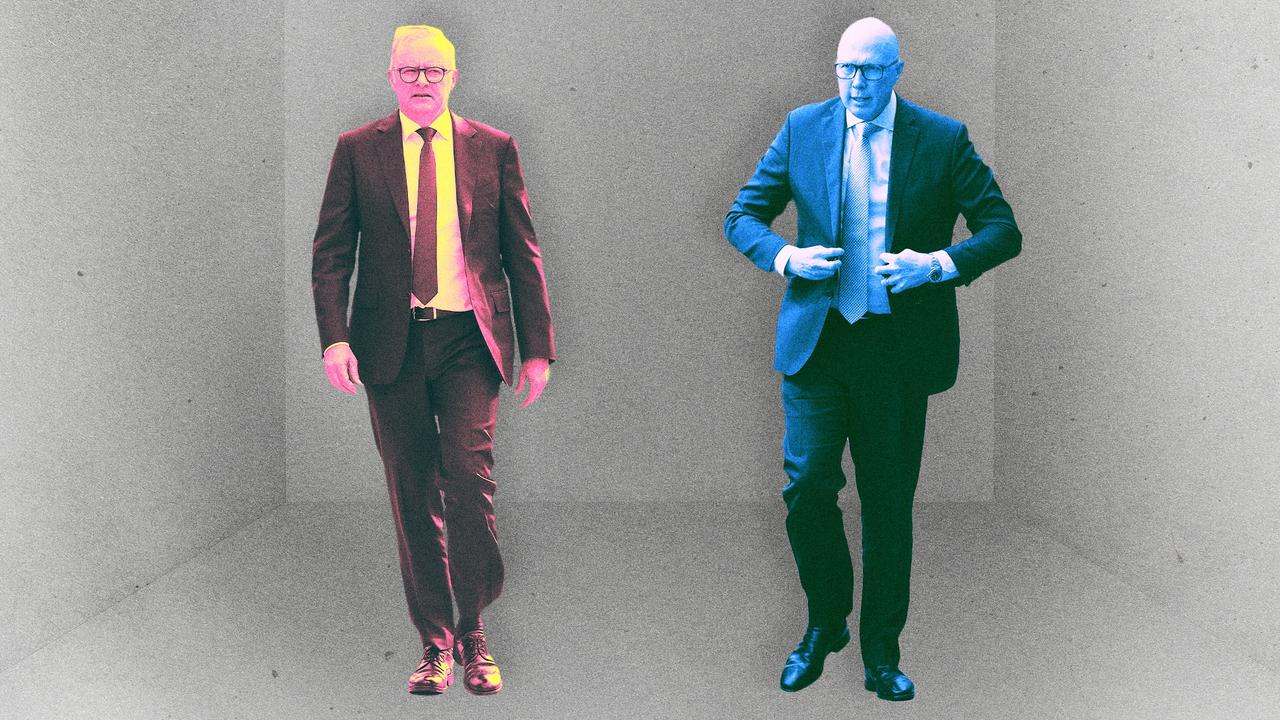Coalition message lost in small targets, tariff upheaval
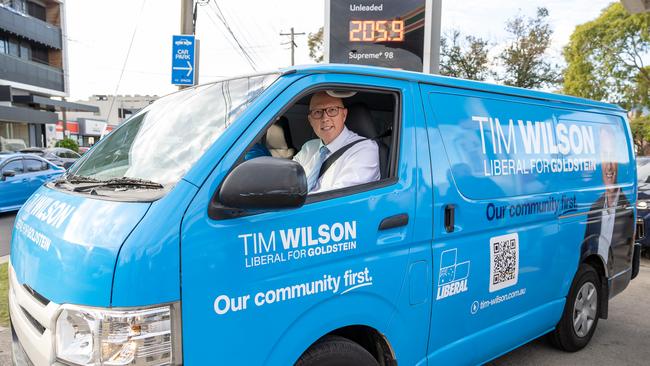
To be successful, a political party needs a strong brand. And success can continue across time only if the party’s brand and policies are grounded in the values and principles it espouses. Further, during an election campaign it is necessary to offer new policy initiatives that reinforce the brand.
At the end of campaign week two, the Coalition has failed to deliver those brand-affirming policies. Having historically and consistently marketed itself as the party of lower taxes, industrial relations reform, free markets and individual freedom, the Liberals have offered little on these policy fronts.
Temporary fuel excise cuts, gas market intervention and forcing people back into the office (since reversed) represent none of these things. The additional Future Fund announcement fits the party’s “lower public debt” mantra but it’s not near enough alone.
This failure explains why the Coalition’s primary vote has fallen and why it has drifted not to Labor but to minor parties that sit to the Coalition’s right.

To be fair, demographic change, the rise of minor parties and independents, and a declining major-party vote make significant reform difficult, particularly from the opposition benches. Look at how it worked out for Bill Shorten in 2019.
Peter Dutton and his advisers no doubt entered the campaign determined on a small-target strategy and, given Labor’s standing in the polls only two months ago, that is understandable.
But the world has changed dramatically in the past month. US President Donald Trump’s tariffs, an interest rate cut, a mood for more cuts, and a confident and effective Anthony Albanese collectively demand a new approach.
The Coalition’s small-target strategy may have been the right one a month ago but it’s not now.
Time is running out for the Coalition. Many voters will disengage further during the Easter and Anzac Day periods and early voting will open soon after.
Like the Prime Minister, Dutton performed well in the leaders’ debate. But an improved personal performance alone won’t stop undecided voters drifting to Labor.
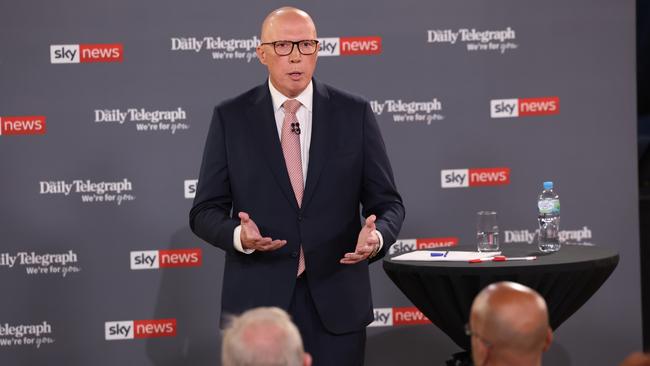
There are hints a big Coalition announcement on defence policy is forthcoming, and that will be welcomed by those of us who watch that space closely. But I suspect few watching the leaders’ debate had defence capability front of mind. If that is the only unannounced policy left in the Coalition locker, Dutton will struggle to lift his party’s primary vote.
In the absence of unforeseen events or a big mistake from Labor, the only strategy now available to the Coalition is an urgent show of brand-consistent policy agility and flexibility.
That means doing something big on cost of living, preferably structural, permanent, productivity-enhancing and through the tax system.
On the other side of the ledger, the Labor team has a lot to be happy about. Albanese is campaigning well. He and his team have remained on message, the campaign team looks superior, and the Coalition’s policy capitulations this week were a free kick.
Labor has enjoyed a bit of luck, too. Who’d have thought the spectre of a recession could help an incumbent government, particularly a Labor government? That outcome flips all the rules and while no doubt concerned about the impact on our economy, Labor can at least be grateful for the anomaly. Of course, some will say you make your own luck and that is sometimes true.
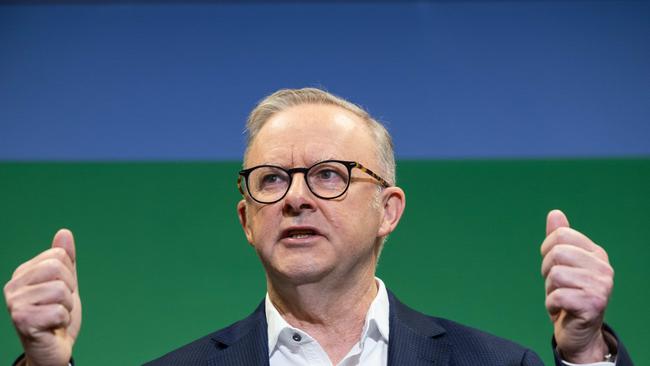
A week is a long time in politics and three weeks can be an eternity. The election outcome is not yet known.
But an unlikely Coalition majority is surely now an impossibility. And the possibility of Dutton winning more seats in the House of Representatives than Albanese has become an unlikely.
Yet what is possible, but still unlikely, is a Labor majority. Labor secured its skinny house majority on the back of 32.6 per cent of the primary vote, a historical low. There are few signs that number has lifted considerably.
In any case, while the aggregate primary vote is important, it’s the seat counts that really matter. While things seem relatively predictable in the smaller states, NSW and Victoria are now the key battleground states. That alone makes things less predictable.
An unpopular state government in Victoria is making Labor’s challenge even harder. Tight political margins and a range of issues in NSW have the Liberals eyeing-off seats not previously believed to be in play.
Yes, Labor could win a couple of seats. The likeliest are the Greens-held Brisbane seats of Brisbane and Ryan, the LNP-held seat of Leichhardt in north Queensland and Liberal-held Sturt in South Australia.
But despite the Greens’ extreme policy positions, the party’s primary vote is holding up in the public polls. Further, not one of the Queensland and South Australian hopefuls will be easy.
So, despite Labor’s momentum and notwithstanding the Coalition’s bad start to the campaign, my prediction of a Labor minority government hasn’t changed. At least not yet.
Joel Fitzgibbon was Labor member for the NSW seat of Hunter, 1996-2022, and the defence minister, 2007-09.

